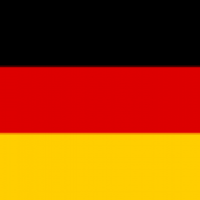Summary:
A German university provides an improved culture platform for functional muscle cultivation. The new system allows the use of modern 3D microscopy methods and more precise drug screening. The university seeks industrial partners for license agreements.
Description:
Skeletal muscle tissue supports essential functions, e.g. breathing, swallowing and limb movement. Strategies to improve muscle function were historically tested in non-human animal models, but in recent years, there is a shift to enlisting microphysiological tissue systems to assess therapeutic efficacy in the context of a human cell assay. To date, all available 3D culture systems to produce skeletal muscle microtissues for testing putative therapies are based on polydimethylsiloxane (PDMS) molds bearing the consequence of immense chemical absorbance of any kind of proteins, thus altering the direct environment of the tissue under study. A downside of PDMS is that poor optical properties and the required relatively large material thickness prevent the use of high numerical aperture objectives which would be required to enable high resolution microscopy and thus make modern 3D microscopy methods like confocal and spinning disk microscopy on living tissue impossible.
A German university now offers an improved culture platform. This platform for cultivating tissue, in particular functional muscle tissue, may be used for high resolution imaging, precise drug screenings, diagnosis and serum-free media cultivation. This is due to the geometrically inverted approach of the culture platform. It allows real-time high resolution imaging while still relying on self-organization of the microtissue around the tips of thin posts which are preferably made of polymethylmethacrylate (PMMA) and which extend downwards into the culture chamber from the top of the culture chamber. The posts allow for an accurate quantification of global forces via detection of post deflection.
The university offers license agreements to industrial partners that are active in cell culture accessories and have an interest in implementing the invention and bringing it to the market.
Type (e.g. company, R&D institution…), field of industry and Role of Partner Sought:
• Type of partnership offered: License agreement
• Type of partner sought: Manufacturers of cell culture accessories
• Role of partner: Make use of the invention, further develop the invention and bring the product to the market.
Stage of Development:
Prototype available for demonstration
IPR Status:
Patent(s) applied for but not yet granted
External code:
TODE20200810001








